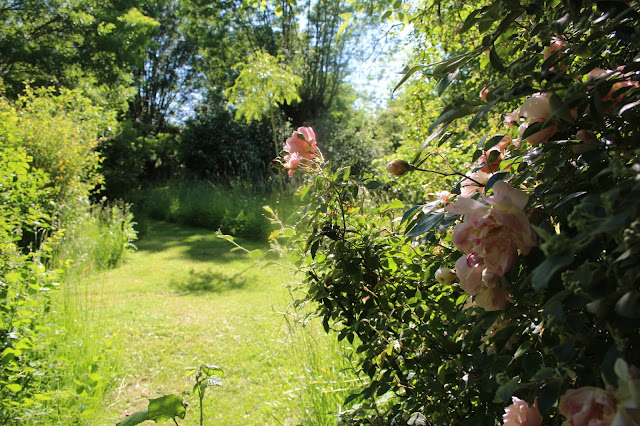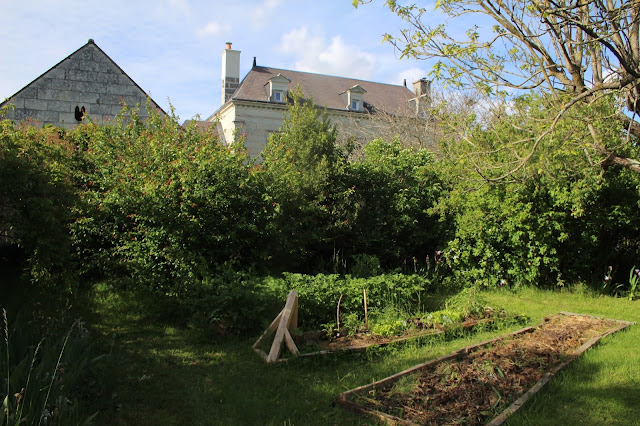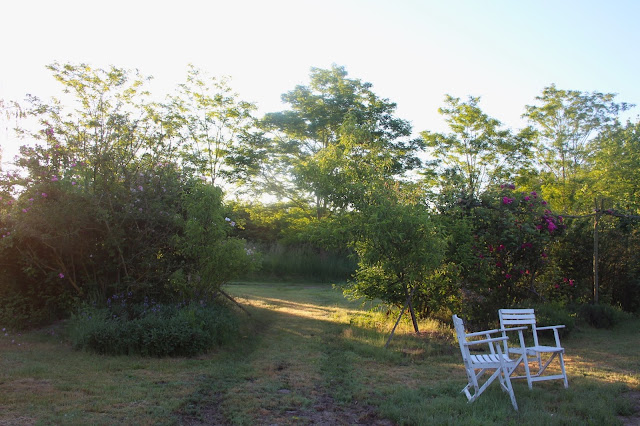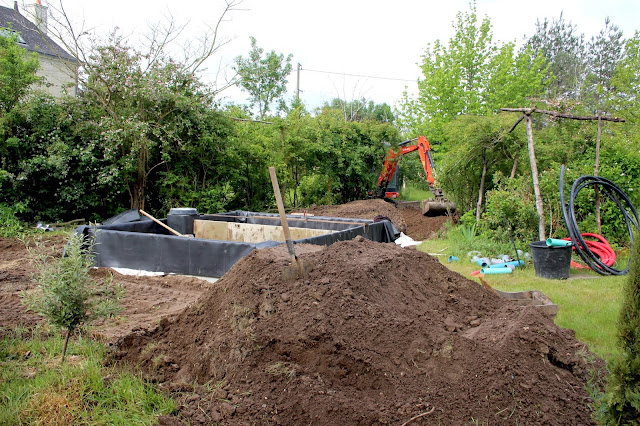One's intestinal activities as described by Lord Peter Wimsey . . . although, you will be, dear reader, glad to know that this post is more about the doings of our house.
When you buy a house in France, possibly the same in other countries, one of the main things that crops up, rather like the cam belt in a second hand car, is, has the fosse septique been done? Inevitably if its an older house the answer is, no. Add a boring waste of several thousands of euros to the list of things that will have to be done and sign at the notaires where they will remind you that this has to be dealt with within a year.
We did consider ignoring this as the current system, just like in the house we left, functioned perfectly well. The fact that the our new abode's fosse is a pipe that runs from the house, under the road and into a field situated in the next department of France was never going to result in a shrug of the shoulders and a beh . . . ça va aller from the scary SPANC people - water authorities or, Small, Pancake-Adoring Newt Catchers.
Within a week of moving in I was already checking the various options knowing any system would take months to sort out. Option One: Huge plastic thing the size of a van buried in the ground which would have to be emptied by one of those poop lorries. Option two: A micro station. As far as I could tell this was similar but cost a bit more. Option three. Phytoépuration. A reed bed system which has only been approved by the small pancake adoring newt catchers relatively recently. It costs a little more, but doesn't have to be emptied and you can at least see at what you were forced to spend money on. That being a very large wood-clad concrete box containing reeds, sand etc.
We possibly could have done it ourselves but I could imagine the endless checking and rechecking, list of things we had done wrong, crashing the hired mini-digger into trees, and so on. With so many other house issues to be dealt with we went for the paying-through-nose option and eventually the rep from Aquataris appeared, measured the ground, did various carrotages (long sections of earth) to check the drain-ability etc and deemed that it was very likely that it would all be approved. It was approved after several weeks and the work planned for mid-may; also timed that the plumbers could link it all up at the appropriate moment and that any doings would move effortlessly - nice! into the new system rather than old pipe into field.
The day arrived, and unlike the plumbers, the firm of landscapers commissioned to do the job turned up! already a great plus. My imaginings of a totally
green system fairly quickly evaporated as I noted the arrival of huge amounts of plastic pipe, plastic sheeting, plastic other things but still a lot less plastic than we would have purchased with option one or two. The employee was a blur of movement for three days, digging trenches, sawing concrete plaques, laying sheeting, gravel, sand, planting reeds and much more. He finished before the plumbers turned up, left me with instructions (eek) and was off to the next installation. Apparently these are becoming more and more favoured with the company completing one a week in our area.

So, it's done, all connected up and the baby reeds have already grown several inches in a week. I do recall my mother saying, however, that when she was a child, her father put their doings in a pit in the garden then when it was rotted they used it on the veg plot. Cost of . . . nothing, no meters of plastic tube, no pumps, no concrete, just rather amazing vegetables . . .
I liked the tube in the field, and we could have bought a harpsichord, or built a big pond or bought a newer car instead. Sob. SPANC are coming to check the installation next week and according to the installer we may have to put up a temporary small plastic fence and then take it away again when they have gone. I can't imagine how anyone would drown in slightly damp sand before which they would have to remove the metal grid system to get at the sand. And I really hope we don't have to pay an extra fifty euros to have the pleasure of seeing the plastic fence for fifteen minutes which I think was on the quote. Madness. All of it. However I still feel it's better than seeing a large piece of disturbed turf under which would be something one spent a vast sum of money on which would never be visible again until it was deemed to be beyond its serviceable life and would have to be dug up and replaced with another van-sized plastic thing.
Cheaper option at 12 euros 53 cents.
























